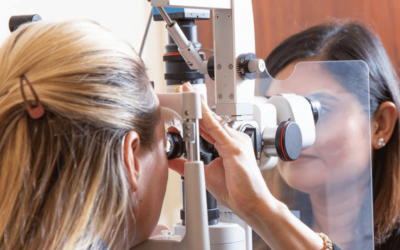Eye health is an essential aspect of our overall well-being, and it can be affected by various factors, including genetics. Our genes determine many aspects of our eye health, including the likelihood of developing certain eye diseases, the progression of these conditions, and the effectiveness of treatments. Understanding the role of genetics in eye health is crucial for maintaining good vision and preventing vision loss. In this blog article, we will explore the relationship between genetics and eye health, including the most common genetic eye conditions and what steps you can take to protect your eyesight.
Here are some of the most common eye conditions that can be inherited:
- Glaucoma: Glaucoma is a group of eye conditions that damage the optic nerve, which transmits visual information from the eye to the brain. This damage is often caused by increased pressure inside the eye, which can lead to vision loss and eventually blindness if left untreated. If someone in your family has glaucoma, it’s important to get regular eye exams to catch it early.
- Macular degeneration: Macular degeneration is a serious eye disease that causes damage to the macula, the part of the retina responsible for sharp, central vision. This can cause blurred vision, difficulty reading, and even blindness.
- Cataracts: Cataracts are a clouding of the eye’s natural lens, which can cause vision loss. While cataracts are often a natural part of aging, they can also be caused by genetics.
- Retinitis pigmentosa: This is a rare genetic disorder that affects the retina, causing vision loss and blindness.
How to protect your eyes
While genetics can play a role in your eye health, there are steps you can take to protect your vision and prevent certain conditions, including:
Get regular eye exams
Routine eye exams can help detect any signs of eye conditions early, even before symptoms develop. Make sure to see an eye doctor regularly, especially if you have a family history of eye conditions.
Wear protective eyewear
Whether you’re playing sports or doing home repairs, wearing protective eyewear can help prevent eye injuries.
Maintain a healthy lifestyle
Eating a balanced diet rich in fruits, vegetables, and omega-3 fatty acids can help reduce your risk of developing certain eye conditions. Exercising regularly, maintaining a healthy weight, and quitting smoking are also ways to maintain good eye health.
Manage chronic conditions
If you have diabetes, high blood pressure, or other chronic conditions, work with your healthcare provider to manage them effectively. Uncontrolled chronic conditions can increase your risk of developing certain eye conditions.
Understand your family’s eye health history
Knowing your family’s eye health history can help you be proactive about your own eye health. It’s also important to share this information with your eye doctor during an exam.
Protect your eyes from the sun
Exposure to the sun’s UV rays can increase your risk of developing certain eye conditions, such as cataracts and macular degeneration. Make sure to wear sunglasses that block 100% of UV rays, even on cloudy days.
While you can’t change your genetics, you can take steps to improve your eye health. Give us a call today to schedule your eye exam in Shelton or Waterbury and learn how you can take control of your eye health and see clearly for years to come!



